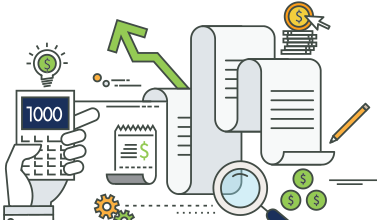
IRS Private Debt Collection Program raises $88.7 million
Doubles revenue generated for new IRS staffing
Today, Senator Chuck Grassley released the latest quarterly data stemming from the work of the Internal Revenue Service (IRS) Private Debt Collection (PDC) Program – which works to bolster the U.S. Treasury and strengthen the effectiveness of the IRS by providing taxpayers with customized, purely voluntary options to help them satisfy their tax debt.
The PDC Program has proven to be a very profitable solution for the federal government, thus far directly collecting $88.7 million in tax revenue, plus millions more that has been collected by the IRS as a result of PDC Program outreach. Tens of thousands of delinquent tax accounts have now been paid in full and nearly 25,000 installment agreements are actively in process.
To boost internal IRS capabilities, the PDC Program has also generated nearly $19 million for the IRS Special Compliance Personnel Program Fund, which provides the agency with much-needed resources to use to hire and train new IRS collections staff. This amount is more than double what was reported last quarter.
“The data makes it crystal clear that the PDC Program is performing extremely well, successfully generating tax revenue for the federal government and paying for itself,” said Kristin Walter, spokesperson for the Partnership for Tax Compliance. “Taxpayers are choosing to participate in this helpful path to tax compliance and reporting a 93 percent customer satisfaction rate when surveyed about their experience.”
Private Sector Best Practices Boost Federal Collections
The PDC Program was mandated by Congress in 2015, as part of bipartisan legislation, and officially launched in April 2017. The effort seeks to expand the customer service capacity of the IRS to offer a segment of taxpayers – those with uncontested tax underpayments – a variety of voluntary payment plans to help them pay down their tax obligations.
There are currently millions of inactive underpayment accounts in arrears representing approximately $131 billion in federal tax revenue. Each year, $20 to 30 billion of that tax revenue is lost as a portion of accounts age out due to the collection statute of limitations. If this previously uncollectable tax revenue is brought in by PDC program payment plans, federal solvency improves and the IRS can augment their collection and recovery capabilities by adding more internal staff.
While the PDC program was implemented slowly over the course of the first year to ensure adherence to IRS rules and procedures, the agency has begun expanding the effort, as required by Congress. Moving forward, revenue collected is projected to grow exponentially – as current installment plans continue to be paid over time, new installment agreements begin and a greater numbers of accounts are released into the program for outreach.
“Congress will soon be faced with difficult decisions as they again work to finalize a budget package,” said Walter. “The additional tax revenue collected via the PDC Program will go a long way to help fund critical federal programs in the years ahead.”
How the PDC Program Works
PDC contractors are limited to calling assigned taxpayers in arrears and offering to facilitate payment arrangements tailored to their ability to pay. If a taxpayer shares that they cannot pay their tax obligation, even over time through a payment plan, they are removed from the PDC program and their account is referred back to the IRS. Taxpayers participating in the PDC Program also have the ability to restructure their payment plans along the way if their circumstances change.
This innovative tax compliance program requires that more than 50 percent of the funds collected go to the U.S. Treasury with another 25 percent of the collected funds going to the IRS to expand their internal collection capabilities. PDC contractors are subject to the same oversight as IRS agents. Contractor calls are monitored by the IRS and a performance measurement system was developed to assess program success.
The PDC Program quality scores, as provided by TIGTA on September 5th, are:
Customer Accuracy: 99.7 percent
Professionalism: 99.9 percent
Timeliness: 99.8 percent
Regulatory Accuracy: 98.5 percent
Procedural Accuracy: 97.2 percent
About the Partnership for Tax Compliance
The Partnership for Tax Compliance is a 501(c)6 non-profit organization that works to educate policymakers and taxpayers about the importance of the public/private partnerships that advance fair tax participation and bolster state and federal government treasuries by recovering tax underpayments. This new coalition aggregates and leverages the vast expertise of the private recovery companies that support the IRS PDC Program, including CBE Group, Performant Recovery, ConServe and Pioneer Credit Recovery.
For more information, visit www.partnershipfortaxcompliance.org
Related Post
Coalition formed to champion...
IRS’ private sector partners in tax recovery efforts commit to increased transparency,...
- June 26, 2018
- By partnershipftcadmin
- Featured Announcements
Taxpayer Advocate Service...
Taxpayer Advocate Service misleads Congress about the IRS Private Debt Collection Program...
- July 9, 2018
- By Kristin Walter
- Featured Announcements
Year 1 results: IRS Private...
Year 1 results: IRS Private Debt Collection Program successfully boosts agency and U.S....
- August 22, 2018
- By Kristin Walter
- Featured Announcements
PCAs receive an A grade on...
PCAs receive an A grade on both quality control and customer satisfaction Washington,...
- September 10, 2018
- By Kristin Walter
- Featured Announcements
Innovative IRS payment plans...
Innovative IRS payment plans help make a dent in the tax gap Washington, D.C. (November...
- November 28, 2018
- By Kristin Walter
- Featured Announcements
IRS Private Debt Collection...
IRS Private Debt Collection Program brings in $130.6 million in tax revenue previously...
- March 12, 2019
- By Kristin Walter
- Featured Announcements


